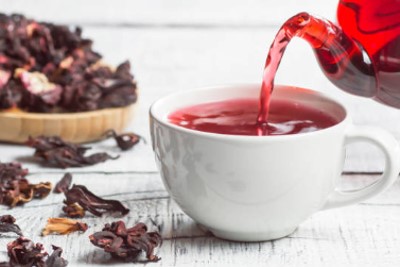
From Green to Black: The Varieties of Tea
Tea, one of the world's most beloved beverages, has a rich and diverse history spanning centuries. From ancient China to tea rooms in bustling cities, tea has evolved into a global phenomenon. In this article, we will embark on a captivating journey through the varieties of tea, exploring the characteristics and origins of different types of tea. So grab a cup of your favorite brew, sit back, and let's delve into the wonderful world of tea.
Green Tea: The Elixir of Vitality
Green tea, cherished for its health benefits and delicate flavor, has its origins deeply rooted in Chinese culture. With minimal oxidation during processing, green tea retains its vibrant green color and fresh taste. The leaves are plucked, quickly heated to prevent oxidation, and then rolled and dried. Its antioxidant properties and potential health benefits have made it a popular choice for health enthusiasts worldwide.
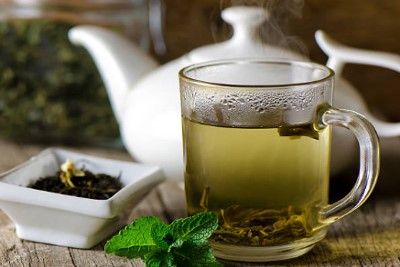
Oolong Tea: A Harmonious Balance
Oolong tea, often referred to as the middle ground between green and black tea, boasts a fascinating production process. The leaves are partially oxidized, resulting in a diverse range of flavors, aromas, and appearances. Oolong teas can range from light and floral to rich and robust, making them a delight for tea connoisseurs seeking complexity and nuance in their brew. Oolong tea is often enjoyed during the afternoon, as Its diverse flavors and aromas make it an excellent choice for tea connoisseurs seeking a midday indulgence.
Hibiscus Tea: Tart and Tangy
Hibiscus tea is a tart and tangy herbal infusion with a deep red color. It is caffeine-free and known for its potential health benefits, including supporting heart health and digestion. It can be enjoyed hot or iced.
Black Tea: Bold and Invigorating
Black tea, the most commonly consumed tea variety globally, offers a robust and full-bodied experience. The leaves undergo complete oxidation before drying, resulting in a rich, dark infusion. The diverse origins of black tea, including India, Sri Lanka, and China, contribute to its extensive flavor profiles, ranging from malty and fruity to smoky and spicy. Whether enjoyed with milk and sugar or sipped straight, black tea is a comforting companion in any situation. Many people kick-start their day with a cup of black tea. Its robust flavor and higher caffeine content provide an energizing boost. Popular black teas include Assam, English Breakfast, and Earl Grey.
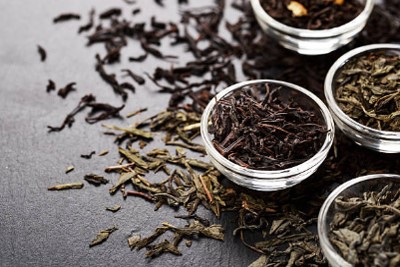
White Tea: Pure Elegance
White tea, the epitome of subtlety and refinement, is revered for its delicate and nuanced flavors. Made from the young leaves and buds of the tea plant, white tea undergoes minimal processing and oxidation. The result is a pale, light-colored brew with subtle floral and sweet notes. Often considered the least processed tea, white tea offers a gentle and soothing experience that captivates tea enthusiasts seeking a more delicate flavor profile.
Herbal Tea: Nature's Infusion
While not technically tea, herbal infusions have gained immense popularity for their aromatic and therapeutic qualities. Herbal teas are made from dried flowers, herbs, fruits, and spices, offering a vast array of flavors and benefits. From soothing chamomile to refreshing peppermint, herbal teas provide a caffeine-free alternative for those seeking a comforting and calming beverage.
Pu-erh Tea: Aged Perfection
Pu-erh tea, renowned for its distinctive earthy flavor, originates from the Yunnan province in China. This tea undergoes a unique fermentation process, which can take years or even decades. The aging process enhances the complexity of its flavor, resulting in a rich and smooth brew. Pu-erh tea is often enjoyed by tea enthusiasts looking for a deep and contemplative experience.

Matcha: The Essence of Zen
Matcha, a finely ground powdered green tea, holds a special place in Japanese tea ceremonies and is gaining popularity worldwide. The tea leaves are shaded before harvesting, resulting in vibrant green leaves with increased chlorophyll and amino acid content. The powdered leaves are then whisked into a frothy concoction, creating a smooth and umami-rich tea. Matcha offers a unique combination of relaxation and focused energy, making it a favorite among those seeking mental clarity. Matcha, powdered green tea, is often enjoyed during Japanese tea ceremonies and on special occasions. Its vibrant green color and unique preparation make it a ceremonial and celebratory tea.
Ceylon Tea: Bold and Citrusy
Ceylon tea, known for its bold and citrusy flavor, is commonly consumed in the morning or early afternoon. It is enjoyed on its own or with milk and sugar and makes a refreshing iced tea option. Ceylon tea is popular globally and is a staple in many households and tea-drinking cultures.
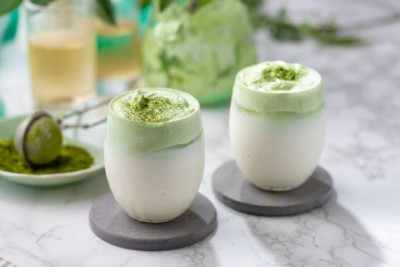
We have explored not only the characteristics and origins of different types of tea but also the cultural significance of when and how they are consumed. From the invigorating black tea in the morning to the soothing herbal infusions in the evening, tea-drinking rituals have become an integral part of many cultures and lifestyles. So, whether you enjoy a cup of green tea to start your day, sip on oolong tea for inspiration, or unwind with a calming herbal blend, tea offers a diverse range of flavors, aromas, and experiences for everyone to enjoy.
Last but not the least, we would like to remind you that your favorite tea brand may need Halal certification under certain circumstances. Tea is a natural ingredient and is generally considered Halal, however, for certain factors like cross contamination, processing agents, etc. it may require Halal certification for Halal conformity and authentication.
So, why wait? Gain your Halal certification through an experienced Halal certifier like ISA and enter the global Halal market with confidence and pride. Numi tea and Harney&Sons are two of our valued Halal certified tea manufacturers. Cheers to the remarkable world of tea!
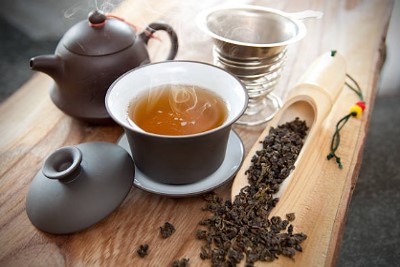
Islamic Services of America (ISA) is a leading USA based Halal Certification and auditing organization serving companies, the community, and the Halal industry for nearly 50 years. Contact ISA at isa@isahalal.com or visit the ISA website for more information at https://www.isahalal.com/
picture credit: www.pexels.com